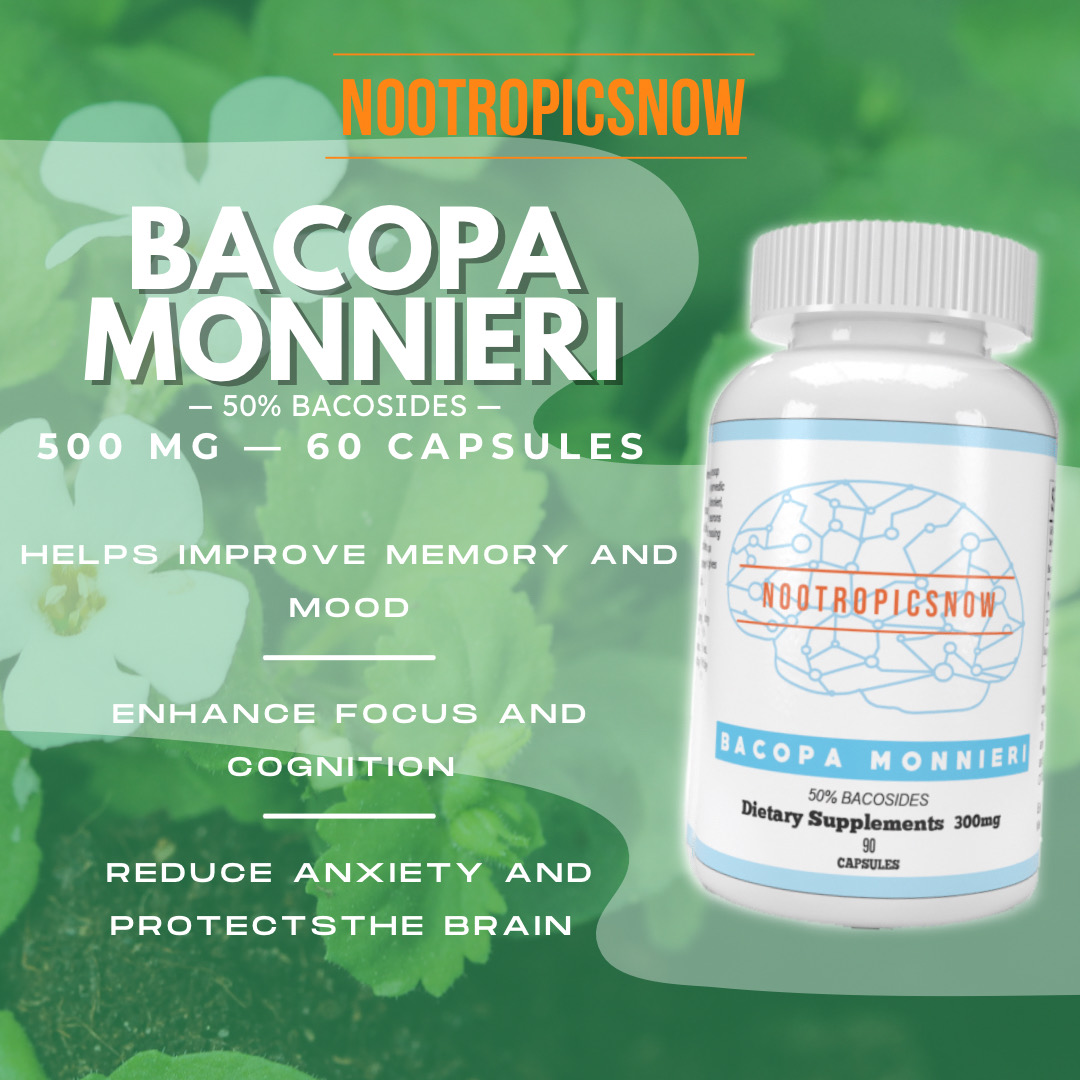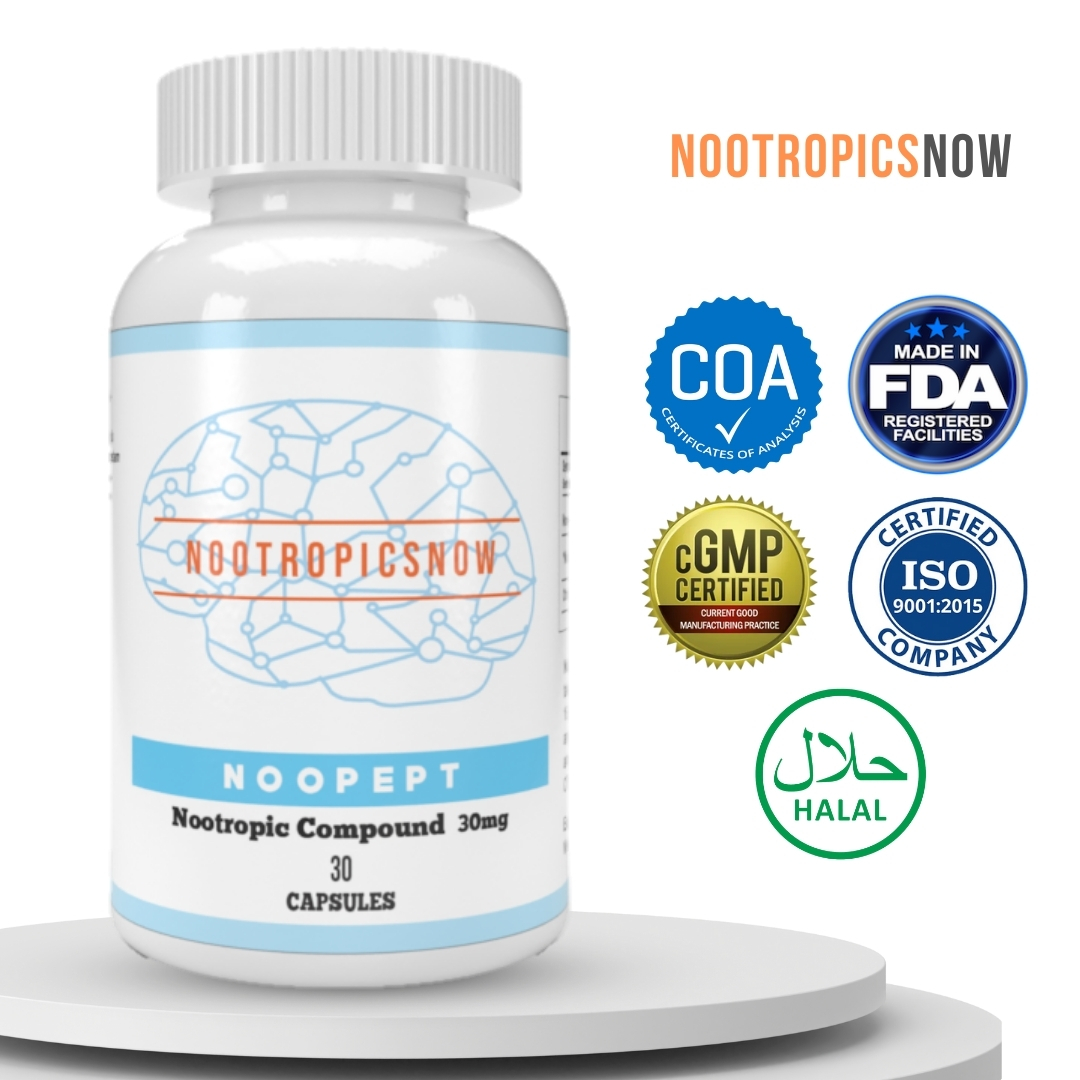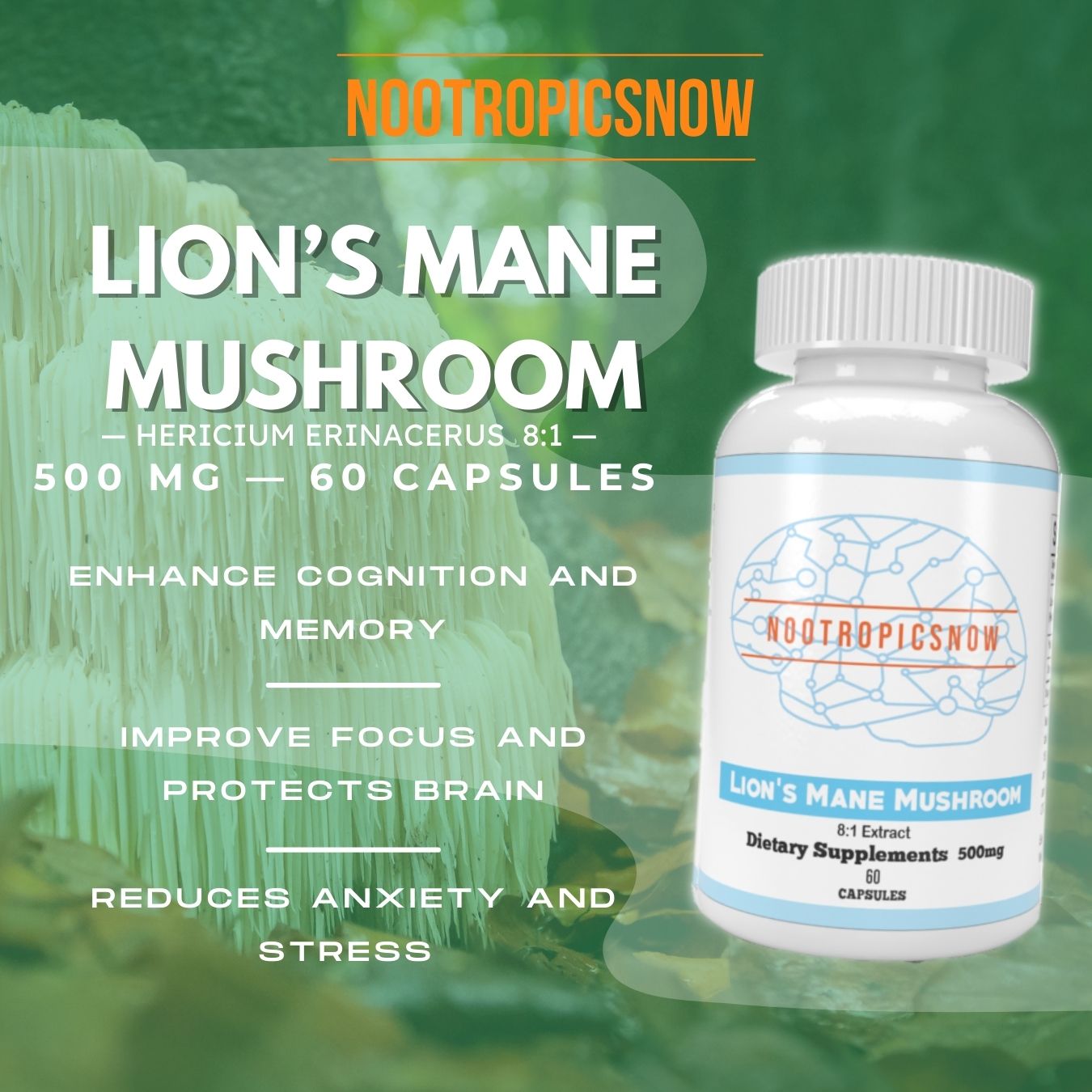Creativity Nootropics: Boost Your Brainpower

`markdown
Creativity Nootropics: Unleashing Your Inner Genius

Creativity is not a singular, monolithic skill. Instead, it’s a complex interplay of various cognitive functions that allow us to generate novel ideas, solve problems in innovative ways, and express ourselves artistically. It hinges on our ability to connect disparate concepts, think divergently, and maintain focus amidst distractions. While creativity may seem elusive, certain substances, known as “creativity nootropics,” can help support and enhance these underlying cognitive processes. These substances work through a variety of mechanisms, impacting neurotransmitter levels, brainwave activity, and overall cognitive function to potentially unlock your creative potential.
Understanding the Neuroscience of Creativity
Before delving into specific nootropics, it’s important to understand the neurological basis of creativity. Several brain regions and neurotransmitter systems are crucial:
Therefore, nootropics that influence these brain regions and neurotransmitter systems may be particularly effective for enhancing creativity.
Top Nootropics for Boosting Creativity
Many substances fall under the umbrella of “nootropics,” but some are more strongly associated with creativity enhancement than others. These substances influence cognitive processes in ways that can foster divergent thinking, improve focus, and promote a more relaxed, open mindset.
1. L-Theanine
L-Theanine is an amino acid commonly found in green tea. It promotes relaxation without drowsiness, making it an ideal nootropic for creatives who need to stay calm and focused. L-Theanine increases alpha brain wave activity, which is associated with a state of relaxed alertness and enhanced creativity. Moreover, it’s usually stacked with caffeine which potentiates cognitive benefits.
2. Caffeine
Caffeine, a well-known stimulant, can enhance focus, alertness, and cognitive performance. While often associated with productivity, caffeine can also indirectly boost creativity by improving attention span and motivation. However, it’s important to use caffeine judiciously, as excessive amounts can lead to anxiety and jitters, which can hinder creative thinking.
3. Noopept
Noopept is a synthetic nootropic that is believed to enhance cognitive function by increasing levels of Brain-Derived Neurotrophic Factor (BDNF), a protein that promotes the growth and survival of neurons. It’s also thought to increase the expression of Nerve Growth Factor (NGF), another protein involved in neuronal growth and maintenance.
4. Phenylpiracetam
Phenylpiracetam is a synthetic nootropic that is structurally similar to piracetam, but with a phenyl group added. This addition enhances its ability to cross the blood-brain barrier, making it more potent. It acts as a stimulant and is often used to improve focus, memory, and cognitive performance. Moreover, phenylpiracetam seems to exhibit anxiolytic properties that assist creativity.
5. Alpha-GPC (Alpha-glycerophosphocholine)
Alpha-GPC is a choline compound that acts as a precursor to acetylcholine, a neurotransmitter crucial for learning, memory, and attention. By increasing acetylcholine levels, Alpha-GPC can support cognitive functions that are essential for creativity, such as connecting ideas and forming new associations.
6. Bacopa Monnieri
Bacopa Monnieri is an Ayurvedic herb traditionally used to enhance cognitive function and memory. It is believed to work by increasing cerebral blood flow and protecting brain cells from oxidative stress. Additionally, studies show that Bacopa reduces anxiety and depression which can help facilitate creativity.
7. Lion’s Mane Mushroom
Lion’s Mane is a medicinal mushroom that is believed to stimulate the production of Nerve Growth Factor (NGF), a protein that plays a crucial role in the growth, maintenance, and survival of neurons. By promoting neurogenesis (the growth of new brain cells) and enhancing neuronal function, Lion’s Mane can support cognitive functions that are essential for creativity.
8. Rhodiola Rosea
Rhodiola Rosea is an adaptogenic herb that helps the body cope with stress. By reducing stress and fatigue, Rhodiola Rosea can improve cognitive function and enhance creativity. It’s also believed to modulate neurotransmitter levels, such as dopamine and serotonin, which can further support creative thinking.
9. Tryptophan
Tryptophan is an essential amino acid that is a precursor to serotonin, a neurotransmitter involved in mood regulation and emotional stability. By increasing serotonin levels, tryptophan can promote a more relaxed and positive mindset, which can be conducive to creative thinking. This is very important, as serotonin helps protect from excessive cortisol activity.
Stacking Nootropics for Creativity: Synergistic Effects
Combining different nootropics can often produce synergistic effects, leading to greater cognitive enhancement than using a single nootropic alone. When creating nootropic stacks for creativity, consider combining substances that work through different mechanisms to target multiple aspects of cognitive function.
Here are some popular and effective nootropic stacks for creativity:
Responsible Use and Safety Considerations
While nootropics can be beneficial for enhancing creativity, it’s crucial to use them responsibly and be aware of potential side effects.
Conclusion: Unleashing Your Creative Potential with Nootropics
Creativity is a complex and multifaceted cognitive function that can be supported and enhanced by the use of nootropics. By understanding the neuroscience of creativity and carefully selecting nootropics that target specific brain regions and neurotransmitter systems, individuals can potentially unlock their inner genius and achieve greater creative output. However, it’s crucial to use nootropics responsibly and prioritize lifestyle factors that support overall cognitive function and well-being. With a thoughtful and informed approach, nootropics can be a valuable tool for unleashing your creative potential and achieving your artistic goals.
`
Creativity Nootropics: Unlocking Your Brain’s Potential
Creativity, a multifaceted cognitive process, underpins innovation and problem-solving. It involves divergent thinking, where the brain explores various solutions, and convergent thinking, which focuses on selecting the most appropriate option. While inherently human, creativity can be enhanced through various means, including the use of specific nootropics. These substances aim to optimize brain function, fostering an environment conducive to innovative thought. This section delves into the world of creativity nootropics, exploring their mechanisms, specific compounds, and how they can potentially unlock your brain’s creative potential.
The Neuroscience of Creativity
To understand how nootropics can enhance creativity, it’s crucial to grasp the underlying neurobiological processes. Creativity isn’t localized to a single brain region; instead, it involves a complex interplay of several areas, most notably the prefrontal cortex, temporal lobes, and parietal lobes.
The prefrontal cortex (PFC) is responsible for executive functions, including planning, decision-making, and working memory. These functions are critical for creative idea generation and evaluation. The temporal lobes, particularly the anterior temporal lobe (ATL), are involved in semantic memory and concept retrieval. These areas help you access and combine existing knowledge to generate novel ideas. Finally, the parietal lobes play a role in attention and spatial processing, contributing to the integration of information and visualization, both essential aspects of creative thinking.
Furthermore, neurotransmitters like dopamine, serotonin, acetylcholine, and norepinephrine play pivotal roles in modulating these brain regions. For instance, dopamine is associated with reward and motivation, encouraging exploration and risk-taking in creative pursuits. Serotonin regulates mood and reduces anxiety, enabling a calm and focused state conducive to idea generation. Acetylcholine enhances memory and cognitive flexibility, facilitating the connection of disparate concepts. Norepinephrine boosts alertness and focus, supporting sustained attention to creative tasks.
How Nootropics Support Creative Thinking
Nootropics enhance creativity by influencing these neurobiological processes. Their mechanisms of action can be broadly categorized into:
By targeting these mechanisms, nootropics can create a more favorable environment for creative thinking, enhancing cognitive flexibility, improving focus, boosting motivation, and reducing anxiety. However, it’s important to remember that nootropics are not magic bullets. They work best when combined with a healthy lifestyle, including adequate sleep, a balanced diet, and regular exercise.
Top Nootropics for Creativity
Several nootropics have shown promise in enhancing creative thinking. However, it is vital to consult a healthcare professional before adding anything to your daily regimen. Some of the most notable include:
1. L-Theanine
L-Theanine is an amino acid found primarily in green tea. It promotes relaxation without drowsiness, creating a state of calm alertness that is conducive to creative thinking. Furthermore, L-Theanine boosts alpha brainwave activity, which is associated with relaxed focus and creativity. It often is stacked with caffeine to reduce the stimulant’s side effects.
2. Caffeine
Caffeine is a widely consumed stimulant that can enhance alertness, focus, and motivation. While it’s not strictly a nootropic, caffeine can be a valuable tool for boosting creativity, especially when used in moderation. However, excessive caffeine consumption can lead to anxiety and jitters, which can hinder creative thinking.
3. Rhodiola Rosea
Rhodiola Rosea is an adaptogenic herb that helps the body adapt to stress. It can reduce fatigue, improve mood, and enhance mental performance, making it a valuable nootropic for creative individuals who often face tight deadlines and demanding projects.
4. Bacopa Monnieri
Bacopa Monnieri is an herb used in traditional Ayurvedic medicine to enhance memory and cognitive function. It improves memory recall, reduces anxiety, and promotes relaxation, all of which can benefit creative thinking.
5. Creatine
Creatine is a naturally occurring compound found in muscle tissue. It is popular among athletes for enhancing physical performance, but it also has cognitive benefits. Creatine improves energy production in the brain, enhancing cognitive function and potentially boosting creativity.
6. Phosphatidylserine (PS)
Phosphatidylserine is a phospholipid that is a component of cell membranes, particularly in the brain. It plays a role in memory, learning, and cognitive function. PS can help maintain brain cell structure, increasing focus and brain function.
7. Noopept
Noopept is a synthetic nootropic that promotes cognitive enhancement. Some users report that it can increase focus, enhance memory, and elevate mood.
It also can act as a neuroprotective and antioxidant agent.
8. Phenylpiracetam
Phenylpiracetam is a synthetic nootropic and a derivative of piracetam. It’s used to enhance cognitive function, memory, and focus. Additionally, it is used to improve physical endurance.
It also can act as a neuroprotective and antioxidant agent.
9. Lion’s Mane Mushroom
Lion’s Mane Mushroom is a medicinal mushroom gaining popularity for its cognitive-enhancing properties. It contains compounds that stimulate nerve growth factor (NGF), a protein that promotes the growth and survival of neurons. NGF is essential for neuroplasticity and brain health.
Stacking Nootropics for Enhanced Creativity
“Stacking” nootropics involves combining multiple substances to achieve synergistic effects. Some popular nootropic stacks for creativity include:
It’s important to research any nootropic stack carefully and start with low doses to assess your tolerance. Consulting a healthcare professional is always recommended before combining multiple substances.
Lifestyle Factors for Optimizing Creativity
While nootropics can enhance creativity, they are not a substitute for a healthy lifestyle. Several lifestyle factors can significantly impact cognitive function and creative potential:
Safety and Considerations
Nootropics can be a valuable tool for enhancing creativity, but it’s crucial to use them responsibly and safely. Before taking any nootropic, consider the following:
By taking these precautions, you can minimize the risks associated with nootropic use and maximize their potential benefits for enhancing creativity.
The Future of Creativity Nootropics
The field of creativity nootropics is rapidly evolving, with ongoing research exploring new compounds and combinations. As our understanding of the neuroscience of creativity deepens, we can expect to see even more targeted and effective nootropics emerge in the future.
Ultimately, the goal is to find substances and strategies that can safely and reliably unlock the brain’s creative potential, empowering individuals to innovate, problem-solve, and express themselves in novel ways.
While creativity nootropics hold promise, it’s important to approach them with a critical and informed perspective. They are not a magic bullet, but rather a tool that can be used in conjunction with a healthy lifestyle and dedicated creative practice to enhance cognitive function and unlock your brain’s potential.















